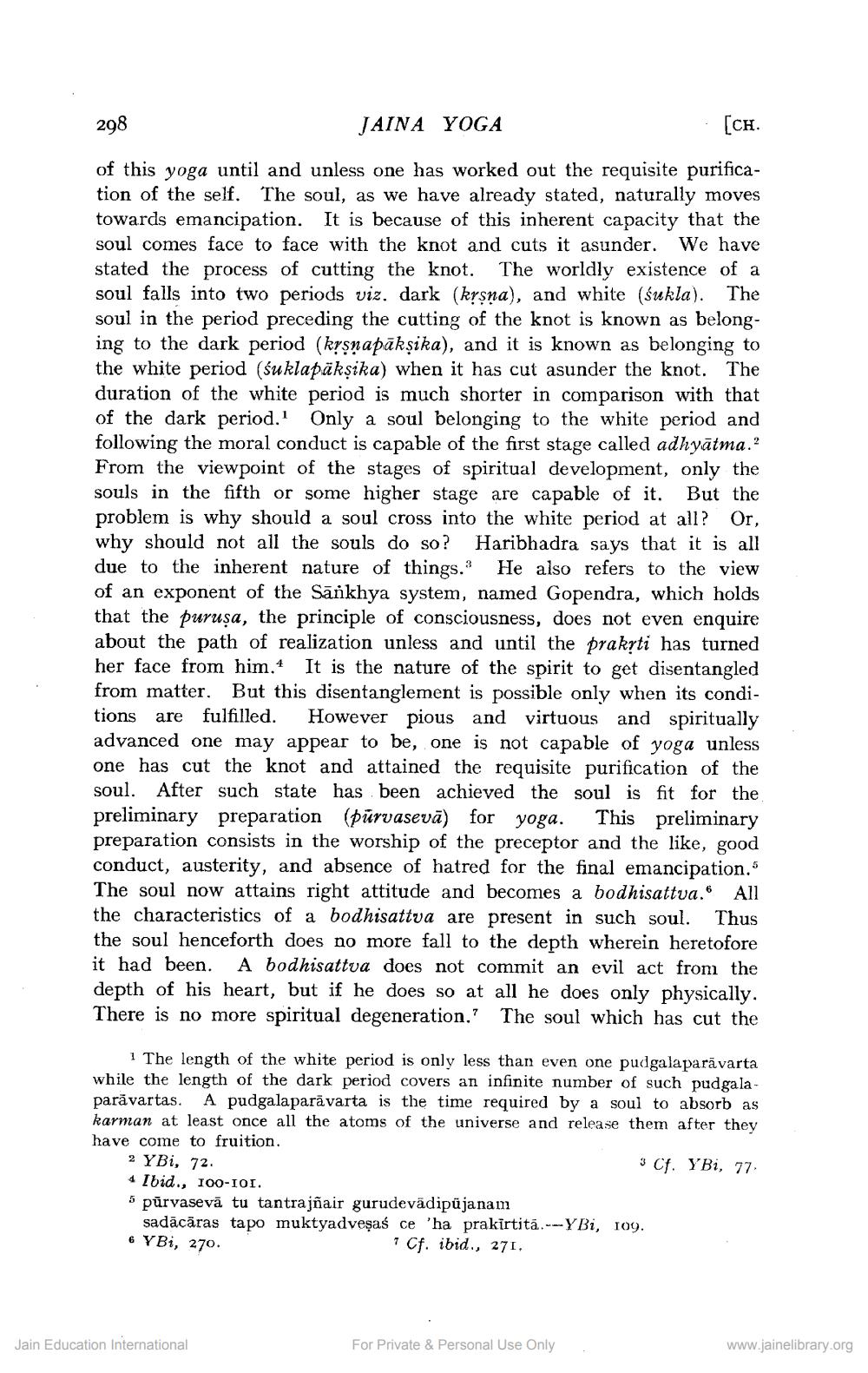________________
298
JAINA YOGA
[CH.
of this yoga until and unless one has worked out the requisite purification of the self. The soul, as we have already stated, naturally moves towards emancipation. It is because of this inherent capacity that the soul comes face to face with the knot and cuts it asunder. We have stated the process of cutting the knot. The worldly existence of a soul falls into two periods viz. dark (krsna), and white (sukla). The soul in the period preceding the cutting of the knot is known as belonging to the dark period (krsnapākṣika), and it is known as belonging to the white period (śuklapäksika) when it has cut asunder the knot. The duration of the white period is much shorter in comparison with that of the dark period. Only a soul belonging to the white period and following the moral conduct is capable of the first stage called adhyātma.? From the viewpoint of the stages of spiritual development, only the souls in the fifth or some higher stage are capable of it. But the problem is why should a soul cross into the white period at all? Or, why should not all the souls do so? Haribhadra says that it is all due to the inherent nature of things. He also refers to the view of an exponent of the Sankhya system, named Gopendra, which holds that the puruṣa, the principle of consciousness, does not even enquire about the path of realization unless and until the prakrti has turned her face from him. It is the nature of the spirit to get disentangled from matter. But this disentanglement is possible only when its conditions are fulfilled. However pious and virtuous and spiritually advanced one may appear to be, one is not capable of yoga unless one has cut the knot and attained the requisite purification of the soul. After such state has been achieved the soul is fit for the preliminary preparation (pūrvasevā) for yoga. This preliminary preparation consists in the worship of the preceptor and the like, good conduct, austerity, and absence of hatred for the final emancipation." The soul now attains right attitude and becomes a bodhisattva. All the characteristics of a bodhisattva are present in such soul. Thus the soul henceforth does no more fall to the depth wherein heretofore it had been. A bodhisattva does not commit an evil act from the depth of his heart, but if he does so at all he does only physically. There is no more spiritual degeneration. The soul which has cut the
1 The length of the white period is only less than even one pudgalaparävarta while the length of the dark period covers an infinite number of such pudgalaparăvartas. A pudgalaparävarta is the time required by a soul to absorb as karman at least once all the atoms of the universe and release them after they have come to fruition. 2 Y Bi, 72.
3 Cf. YBi, 77 4 Ibid., 100-IOI. 5 pūrvasevā tu tantrajñair gurudevädipüjanam
sadācāras tapo muktyadveşaś ce 'ha prakirtita.---Y Bi, 109. 6 Y Bi, 270.
7 Cf. ibid., 271,
Jain Education International
For Private & Personal Use Only
www.jainelibrary.org




